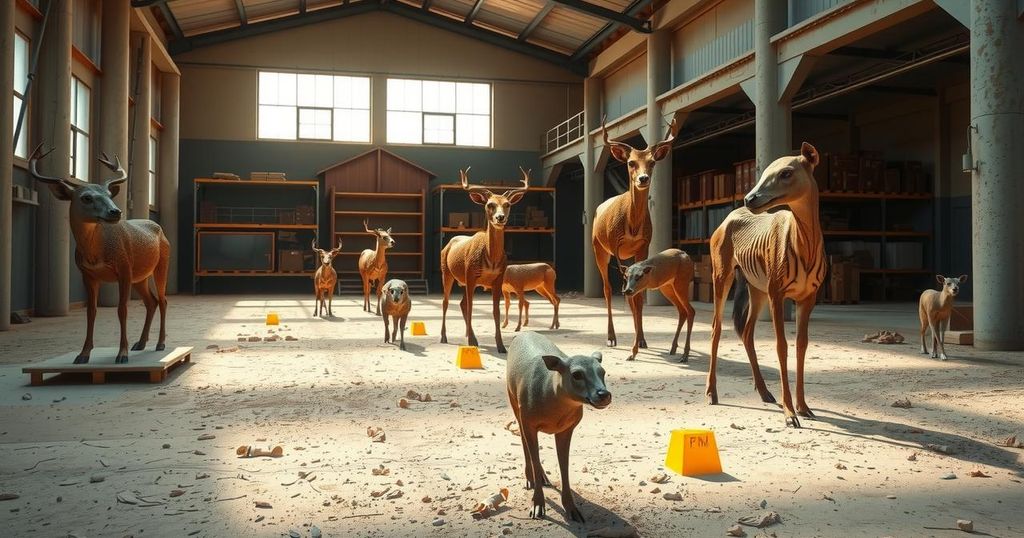Inside the Wildlife Forensic Academy: Combating Poaching in South Africa

The Wildlife Forensic Academy in South Africa trains rangers and conservation officers to combat poaching through hands-on experience with crime scene investigation. Despite the grim statistics showing significant wildlife losses and low prosecution rates, the academy aims to improve evidence collection to enhance conviction rates. With over 500 trained since its inception, the academy is fostering a community of dedicated conservationists.
In South Africa, the Wildlife Forensic Academy serves as a crucial training ground aimed at combating poaching through the education of rangers, conservation officers, and law enforcement personnel. Located in a private game reserve north of Cape Town, the facility employs staged crime scenes with taxidermied animals to provide hands-on experience in securing evidence. Phil Snijman, a trainer at the academy, emphasizes the significance of initial responders at a crime scene, stating that proper training is essential to preserving valuable evidence.
The country faces a severe poaching crisis, with over 10,000 rhinos killed since 2007, and only 36 successful convictions reported in 2023 despite nearly 500 rhinos being slaughtered that year. According to Snijman, other marginalized species like reptiles and vultures experience even lower prosecution rates due to inadequate police presence and attention to these crimes. Wendy Willson, legal head at Johannesburg’s Wildlife Veterinary Hospital, echoes this sentiment, noting that wildlife crime often remains unpunished and results in lenient sentences when it is prosecuted.
At the academy, Mari-Su de Villiers, a 28-year-old conservationist, applies her skills in footprint analysis to contribute to the protection of endangered species. The academy has successfully trained over 500 individuals since its opening in 2022, although only 89 attendees have been directly involved in conservation or law enforcement. Much of its funding comes from European students, which in turn helps support local rangers.
Snijman explains that enhancing the collection of forensic evidence increases the potential for successful prosecutions, ultimately serving as a deterrent to future wildlife crimes. Despite acknowledging that the academy is not a complete solution, he considers it a valuable component of the broader fight against wildlife crime in South Africa.
The Wildlife Forensic Academy plays an indispensable role in addressing South Africa’s burgeoning poaching crisis by equipping essential personnel with necessary investigation skills. Although the challenge of wildlife crime prosecution remains vast, enhanced evidence collection and increased awareness are vital steps towards securing justice for all species affected by poaching. Continuous training and community support are crucial in preserving endangered wildlife for future generations.
Original Source: www.times-georgian.com







